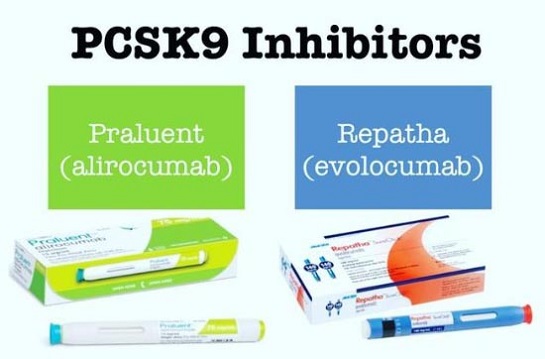Nikhil Prasad Fact checked by:Thailand Medical News Team Aug 01, 2024 8 months, 3 weeks, 4 days, 14 hours, 24 minutes ago
Nephrology News: In a groundbreaking new study, researchers from Hunan Provincial People's Hospital and The First Affiliated Hospital of Hunan Normal University have uncovered an intriguing relationship between cholesterol-lowering medications known as PCSK9 inhibitors and their impact on kidney health. This
Nephrology News report delves into the study, which explores both the potential risks and surprising protective benefits these drugs may offer against acute kidney injury (AKI).
 Study unveils protective benefits of cholesterol-lowering drugs on kidneys
Understanding PCSK9 Inhibitors
Study unveils protective benefits of cholesterol-lowering drugs on kidneys
Understanding PCSK9 Inhibitors
PCSK9 inhibitors are a relatively new class of medications used to lower cholesterol levels in the blood. They work by inhibiting a protein called PCSK9, which increases the number of low-density lipoprotein receptors (LDL-R) on liver cells, enhancing the removal of LDL cholesterol (often referred to as "bad" cholesterol) from the bloodstream. By reducing LDL cholesterol, these inhibitors help prevent atherosclerotic cardiovascular disease (ASCVD), a leading cause of heart attacks and strokes.
The Study and Its Purpose
Despite the well-documented cardiovascular benefits of PCSK9 inhibitors, recent case reports have suggested a possible link between these drugs and AKI, a condition characterized by a sudden decline in kidney function. To investigate this potential association, researchers conducted a comprehensive pharmacovigilance study using data from the Food and Drug Administration's Adverse Event Reporting System (FAERS) database. This article highlights the study's key findings and their implications.
Research Methodology
The research team analyzed adverse event reports related to PCSK9 inhibitors, specifically focusing on two widely used drugs: evolocumab and alirocumab. By examining data spanning from the third quarter of 2015 to the fourth quarter of 2022, they aimed to identify cases of AKI and understand any underlying patterns. The study involved a total of 144,341 adverse event reports, including 444 cases suspected of AKI for evolocumab and 172 cases for alirocumab.
Key Findings
One of the most significant revelations of this study is that PCSK9 inhibitors may offer a protective effect against AKI. This finding contrasts with earlier reports suggesting these drugs could induce kidney injury. Here are some of the critical insights:
-Gender and Age Differences: The study found that evolocumab had a more pronounced impact on reducing AKI risk in males, with a Reporting Odds Ratio (ROR) of 1.4. In contrast, alirocumab-related AKI cases were more evenly distributed across genders.
-Combination with Other Medications: When PCSK9 inhibitors were used alongside other nephrotoxic drugs, such as cephalosporins, furosemide, and proton pump inhibitors (PPIs), the protective effect against AKI was still evide
nt. This suggests that PCSK9 inhibitors might mitigate the harmful effects of other medications on the kidneys.
-Impact Over Time: The number of reported AKI cases peaked in 2018 and then gradually declined. This trend indicates that as more data became available and physicians gained experience with these drugs, their use became safer.
The Science Behind the Findings
The protective effects of PCSK9 inhibitors against AKI may be due to their anti-inflammatory and antioxidative properties. Previous studies have shown that PCSK9 inhibitors can reduce inflammation and oxidative stress, which are critical factors in the development of AKI. Moreover, these drugs may enhance autophagy, a process that helps cells remove damaged components and maintain homeostasis.
Clinical Implications
For healthcare providers, these findings offer new insights into the safe and effective use of PCSK9 inhibitors, particularly for patients at high risk of kidney injury. By understanding the potential protective benefits, doctors can make more informed decisions when prescribing these medications, especially in combination with other drugs known to affect kidney function.
Conclusion
This study, published in the peer-reviewed journal Frontiers in Pharmacology, sheds new light on the relationship between PCSK9 inhibitors and kidney health.
https://www.frontiersin.org/journals/pharmacology/articles/10.3389/fphar.2024.1353848/full
It challenges previous assumptions about the risks of these medications and highlights their potential protective effects against AKI. As researchers continue to explore the full range of benefits and risks associated with PCSK9 inhibitors, patients and healthcare providers alike can look forward to more nuanced and effective treatment strategies.
Stay Informed
For the latest
Nephrology News and nephrology updates on medical research and treatments, keep logging on to Thailand Medical News.
Read Also:
https://www.thailandmedical.news/news/doctors-from-turkey-warns-that-children-exposed-to-sars-cov-2-are-at-risk-of-acute-kidney-injury
https://www.thailandmedical.news/news/kidney-disease-can-lead-to-hearing-loss-and-tinnitus
